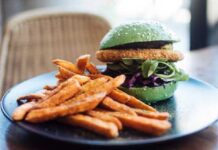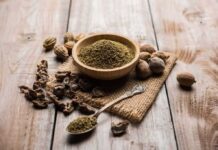
During chilly weather, some people put on many layers of clothing to stay warm. Although their body may feel warmer—their hands and feet might remain cold. From a traditional Chinese medicine (TCM) perspective, this is seen as a typical phenomenon of insufficient “qi” (vital energy) and blood.
The insufficiency of qi and blood referred to in TCM is like anemia in western medicine. According to the latter, anemia is the lack of hemoglobin in the body, which cannot deliver enough oxygen to all tissue cells, resulting in fatigue, weakness, pale complexion, cold hands and feet, and dizziness.
In the theory of TCM, physiological activities within the body do not just rely on blood circulation for nutrient supply, but also depend on the energy (the movement of qi) inside the body.
Hu Naiwen, a TCM physician at Taipei’s Shanghai Tongdetang Chinese Medicine Clinic, uses the analogy of qi and blood with the electrical system in a car for comparison in the program “Hu Naiwen’s Lecture.”
He said blood is like gasoline in a car, and qi is the electricity generated. Only gasoline can generate electricity, and if there is no electricity, the car can’t start. “Qi and blood are the foundation of life. They can nourish internal organs and tissues. When they are balanced, the owner’s spirit will be good, and all diseases will be blocked.”
How do you know if your qi and blood are running smoothly? Mandy Chan Tsz-man, a registered TCM practitioner in Hong Kong, said in the program there are “100 ways to cure the 100 diseases” and that although women often encounter qi and blood problems from irregular menstruation, this problem is not unique to females and could also happen in men.
The most common symptom of qi and blood deficiency is cold hands and feet. There was, for example, a patient who was keen on jogging. He felt warm when he ran, but his hands and feet turned cold soon after he stopped. Chan found that some people who love sports tend to take up an unbalanced diet to build muscles, which may affect qi and blood.
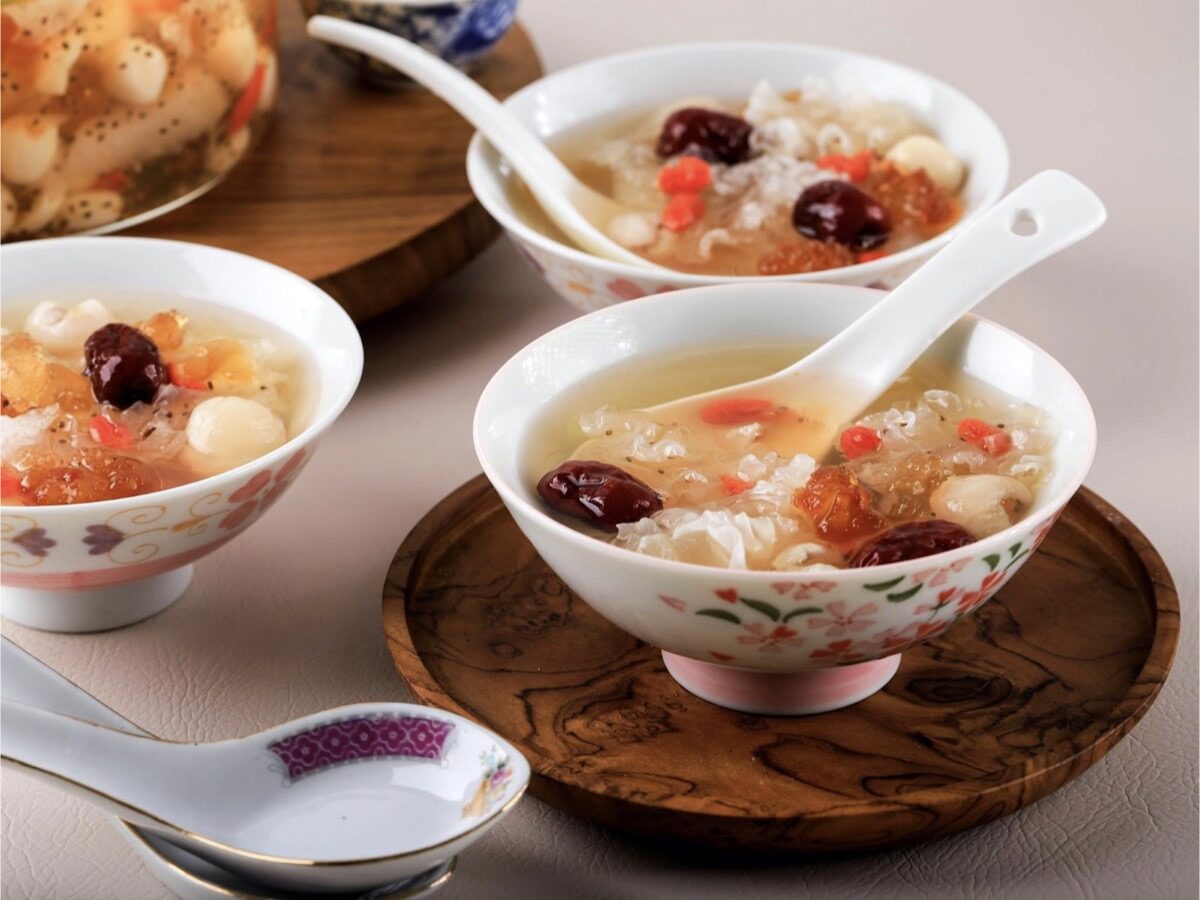
Chinese Medicine Nourishes Qi and Blood to Restore Strength and Boost Immunity
Astragalus (also known as “Bei Qi”) is commonly used to invigorate qi, and Chinese angelicae is often used to invigorate blood. These medicinal herbs are generally used to treat people who are weak after a serious illness and provide a curative effect.
Randomized double-blind clinical trials have confirmed that for patients suffering from frailty after a stroke, taking Astragalus can help improve their fatigue and improve their quality of life. For cancer patients, many studies have also found that taking decoctions containing Astragalus can reduce mortality and improve the side effects of radiotherapy and chemotherapy.
Angelicae is a common blood-enriching and blood-invigorating medicinal herb. It is mostly used to treat women’s dysmenorrhea and is also often made into health care products, which are widely sold in pharmacies. Modern scientific research has also found that Angelicae has anti-oxidation, anti-cancer, and immune-boosting properties.
The Importance of Proper Tonic Supplements
Chan emphasized that due to different physiques, people with insufficient qi and blood should be careful in selecting the right medicinal materials. She often encounters patients who suffer from physical discomfort due to taking the wrong supplements.
Chan said that recently a patient claiming high blood pressure came to her. This patient usually has good blood pressure control, but on the day before seeing her, because of muscle discomfort, he bought a soup package containing Astragalus in a large chain medicinal shop and drank it. That same night, he became dizzy, and his blood pressure rose.
TCM treats patients focusing on the principle of “syndrome differentiation,” and the same symptom may have different causes. It can be described by various concepts such as exterior and interior, cold and heat, deficiency and excess, yin and yang, and may come up with quite dissimilar treatments between one another.
Chan explained that for the same symptom of high blood pressure—there can be different causes of the symptom—for weak qi and blood it is therefore advised to take tonic; while others’ blood pressure may go up after taking tonics. This patient is one whose physique is not fit for taking Astragalus.
Be Cautious When Taking Supplements During Menstruation
Angelicae, often known as the “Holy Medicine for Women,” is not right for everyone. Siwu Tang (four substances decoction), a traditional women’s nourishing decoction comprising the four herbs, Angelicae, Rehmanniae, Chuanxiong, and Paeoniae, can nourish blood and promote blood circulation.
However, the doctor said that the dosage of Siwu Tang should be adjusted according to individual physical fitness and is not recommended to be purchased and administered indiscriminately oneself.
Chan said that she once came across a female patient with insufficient qi and blood. After each menstruation, her mother would buy the Siwu Tang tea bags for her. After drinking it, she always felt a sore throat and said to her mother, “I don’t feel well after drinking it, can I stop it?”
But her mother insisted that because of her lack of qi and blood, “Siwu Tang is the best for you, there is no way you stop taking it.” Chan said that although the patient was short of qi and blood, she was not befitting from Angelicae and it had to be replaced by other medicines.
TCM believes that both food and medicine exhibit four characteristics in nature: Cold, hot, warm, and cool. Warm or hot foods and herbs warm the body, while cool or cold foods help cool it down. Angelicae is warm in nature and can apply to people with a cold constitution. People should choose different foods according to their constitution, to keep the body in a state of balance.
Drinking Jujube Tea to Regulate Menstruation
Some women who take good care of their health will drink jujube tea before and after menstruation to replenish their bodies. Jujube is good for qi, invigorating the spleen and stomach, nourishing blood, and calming the nerves, but because of its warm and dry nature, some people may feel uncomfortable after taking it. As a personal experience, Chan said that she could not sleep well after eating red jujube for three days in a row, but it was all right after switching to southern jujube.
Both southern and red jujube is made from jujube, but the processing methods are different, resulting in different medicinal properties. Red jujubes are made from the sun-dried fruits of jujubes, which are dry in nature, while southern jujube is made after being boiled, fried, plus other processing. It is mild in nature and nourishing yet not overwhelming, but they are also more expensive. Therefore, if you do not feel uncomfortable after eating red dates, taking red jujubes can also work in regulating qi and blood.
Chan also emphasized that it is best to boil the dates before drinking jujube tea. If you only use hot water to brew, the effect will not be as obvious. She suggested using a stuffy beaker to exude its medicinal efficacy.
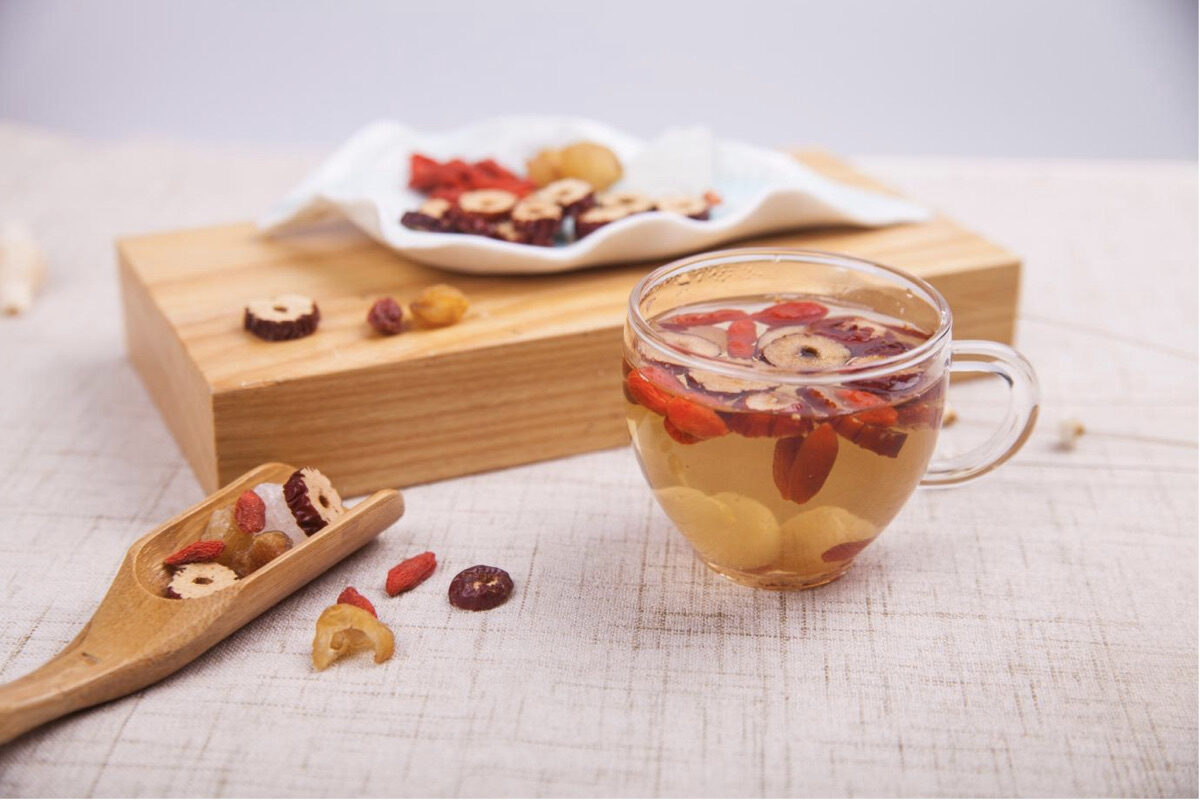
Nourishing Qi and Blood Starts With the Diet
Hu believes that if you want to replenish blood, you must first replenish qi, and if you want to replenish qi, you must first nourish the spleen and stomach. When the digestive system is going strong, qi and blood can be naturally generated and replenished. He suggested that daily consumption of pumpkin, millet, yam, lotus seeds, red dates, and cabbage can nourish the spleen and stomach.
For those who need to replenish qi and blood after recovering from a serious illness, porridge is the most conducive food to absorb nutrients. The ingredients recommended by Hu for making porridge include oats, red dates, minced beef (or minced pork), eggs, and dark green vegetables. Porridge with the above ingredients provides a splendid blood-enriching effect.
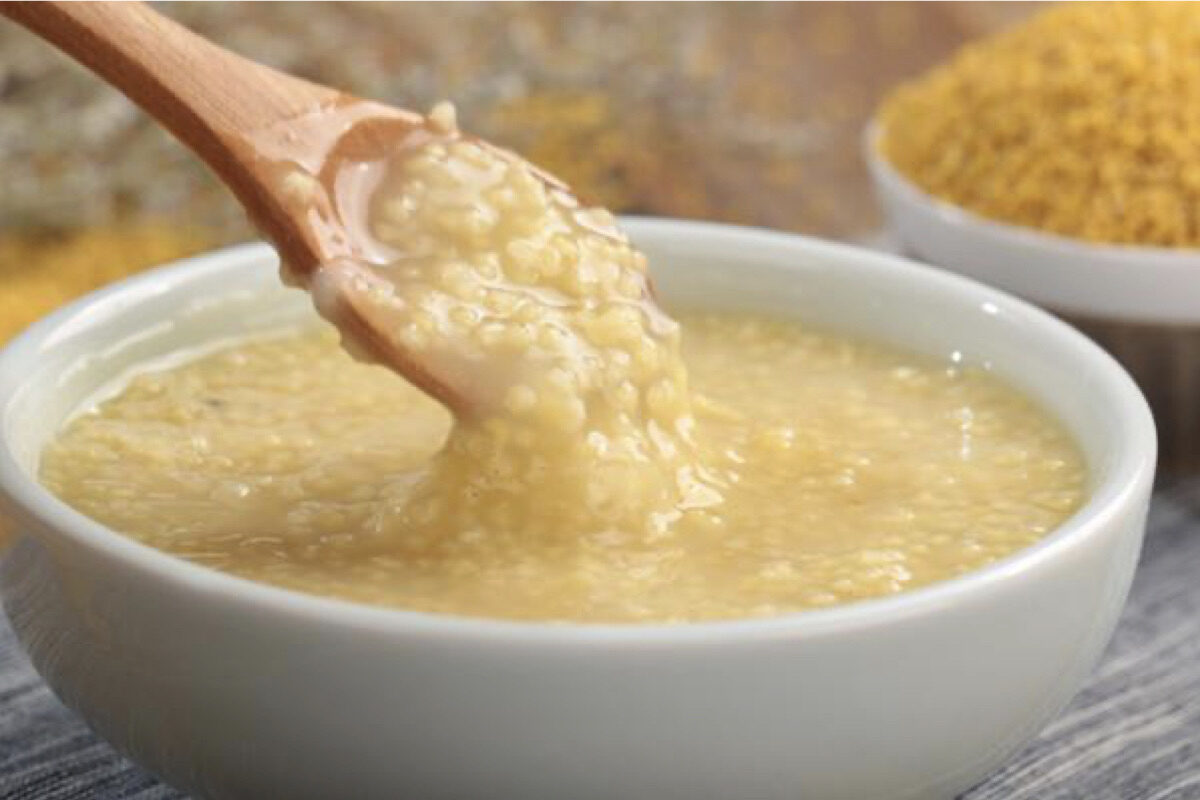
Important Notice: This article was originally published at www.theepochtimes.com by May Cheng and Teresa Zhang where all credits are due.
Disclaimer
The watching, interacting, and participation of any kind with anything on this page does not constitute or initiate a doctor-patient relationship with Dr. Farrah™. None of the statements here have been evaluated by the Food and Drug Administration (FDA). The products of Dr. Farrah™ are not intended to diagnose, treat, cure, or prevent any disease. The information being provided should only be considered for education and entertainment purposes only. If you feel that anything you see or hear may be of value to you on this page or on any other medium of any kind associated with, showing, or quoting anything relating to Dr. Farrah™ in any way at any time, you are encouraged to and agree to consult with a licensed healthcare professional in your area to discuss it. If you feel that you’re having a healthcare emergency, seek medical attention immediately. The views expressed here are simply either the views and opinions of Dr. Farrah™ or others appearing and are protected under the first amendment.
Dr. Farrah™ is a highly experienced Licensed Medical Doctor certified in evidence-based clinical nutrition, not some enthusiast, formulator, or medium promoting the wild and unrestrained use of nutrition products for health issues without clinical experience and scientific evidence of therapeutic benefit. Dr. Farrah™ has personally and keenly studied everything she recommends, and more importantly, she’s closely observed the reactions and results in a clinical setting countless times over the course of her career involving the treatment of over 150,000 patients.
Dr. Farrah™ promotes evidence-based natural approaches to health, which means integrating her individual scientific and clinical expertise with the best available external clinical evidence from systematic research. By individual clinical expertise, I refer to the proficiency and judgment that individual clinicians acquire through clinical experience and clinical practice.
Dr. Farrah™ does not make any representation or warranties with respect to the accuracy, applicability, fitness, or completeness of any multimedia content provided. Dr. Farrah™ does not warrant the performance, effectiveness, or applicability of any sites listed, linked, or referenced to, in, or by any multimedia content.
To be clear, the multimedia content is not intended to be a substitute for professional medical advice, diagnosis, or treatment. Always seek the advice of your physician or other qualified health providers with any questions you may have regarding a medical condition. Never disregard professional medical advice or delay in seeking it because of something you have read or seen in any website, video, image, or media of any kind. Dr. Farrah™ hereby disclaims any and all liability to any party for any direct, indirect, implied, punitive, special, incidental, or other consequential damages arising directly or indirectly from any use of the content, which is provided as is, and without warranties.


